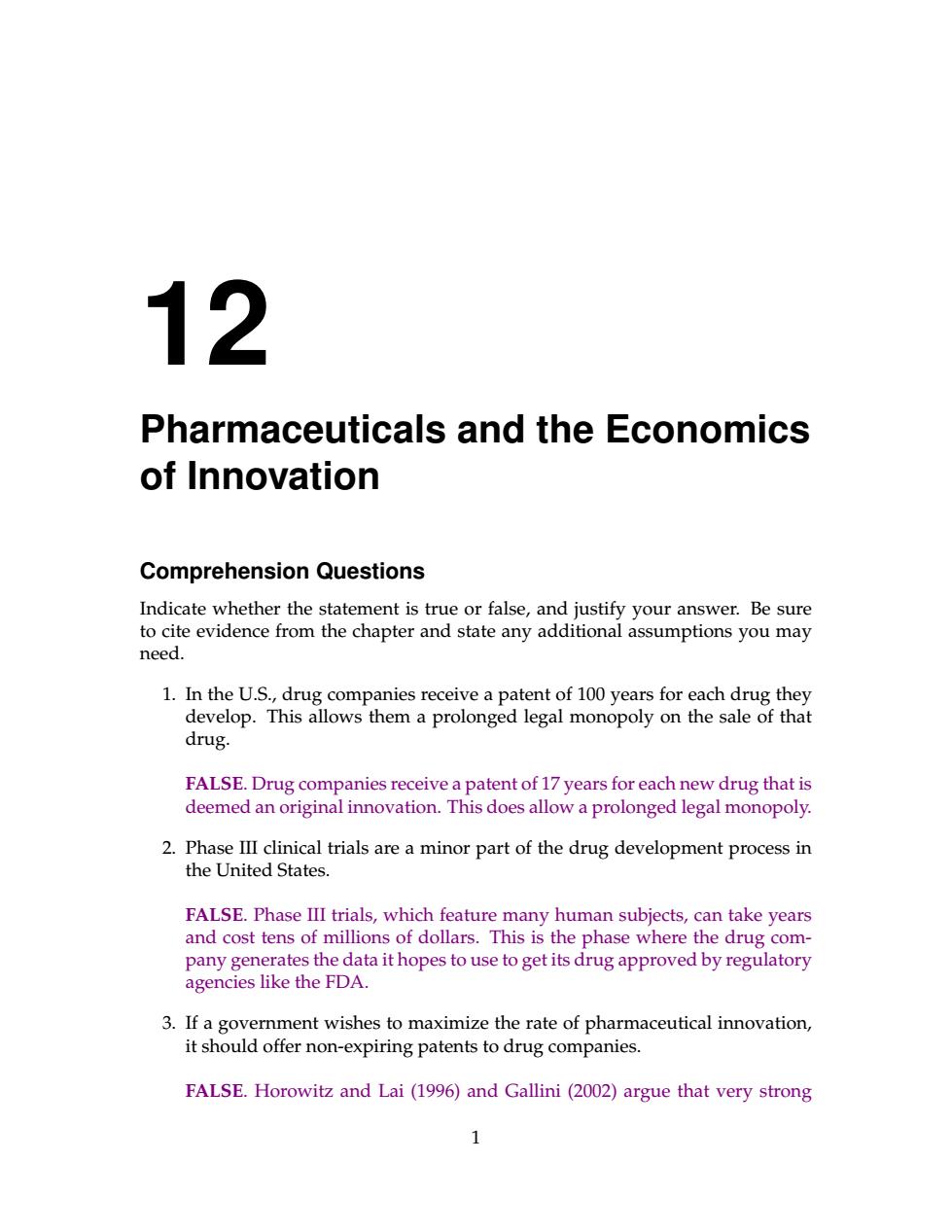正在加载图片...

12 Pharmaceuticals and the Economics of Innovation Comprehension Questions Indicate whether the statement is true or false,and justify your answer.Be sure to cite evidence from the chapter and state any additional ssumptions you may need. 1.In the U.S., drug companies receive a patent of 100 years for each drug they develop.This allows them a prolonged legal monopoly on the sale of that drug. FALSE.Drug companies receive a patent of 17 years for each new drug that is deemed an original innovation.This does allow a prolonged legal monopoly. 2.Phase III clinical trials are a minor part of the drug development process in the United States. FALSE.Phase III trials,which feature many human subjects,can take years and cost tens of millions of dollars.This is the phase where the drug com- pany generates the data it hopes to use to get its drug approved by regulatory agencies like the FDA. 3.If a government wishes to maximize the rate of pharmaceutical innovation, it should offer non-expiring patents to drug companies. FALSE.Horowitz and Lai (1996)and Gallini(2002)argue that very strong12 Pharmaceuticals and the Economics of Innovation Comprehension Questions Indicate whether the statement is true or false, and justify your answer. Be sure to cite evidence from the chapter and state any additional assumptions you may need. 1. In the U.S., drug companies receive a patent of 100 years for each drug they develop. This allows them a prolonged legal monopoly on the sale of that drug. FALSE. Drug companies receive a patent of 17 years for each new drug that is deemed an original innovation. This does allow a prolonged legal monopoly. 2. Phase III clinical trials are a minor part of the drug development process in the United States. FALSE. Phase III trials, which feature many human subjects, can take years and cost tens of millions of dollars. This is the phase where the drug company generates the data it hopes to use to get its drug approved by regulatory agencies like the FDA. 3. If a government wishes to maximize the rate of pharmaceutical innovation, it should offer non-expiring patents to drug companies. FALSE. Horowitz and Lai (1996) and Gallini (2002) argue that very strong 1